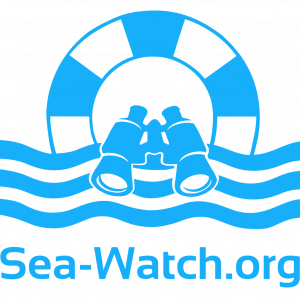On 14 June 2023, over 600 men, women and children who had fled Libya have drowned near the Greek island of Pylos in one of the largest shipwrecks in recent years. A few weeks earlier, on 23 May 2023, 500 people who had already made it to the Maltese search and rescue zone by boat were taken back to Benghazi by the notorious Libyan militia Tariq Ben Zeyad[1]. Some of the then occupants of the boat drowned on their second attempt to cross on the boat off Pylos. Between letting people die and illegal pushbacks: the risks for asylum seekers fleeing Libya are great, and the number of victims would be much higher if it were not for the permanent presence of a civil fleet for sea rescue. But these rescue ships are systematically harassed and criminalised by the Italian government. For instance, the new Piantedosi decree prohibits rescue organisations from rescuing further people in distress at sea after they have been assigned a port of safety. The SEA EYE 4’s efforts to rescue people from distress at sea as quickly as possible and to prevent illegal push backs can never be wrong and must not be punished. The Piantedosi Decree is an inhumane law and must be abolished immediately.

A ship of the Libyan Tarek Ben Zayed militia during a push-back in June 2023 photographed from aboard the Sea-Bird 2.
The situation on 30 May 2023
On 30 May 2023, the SEA-EYE 4 was on its way to Ortona, still several hundred kilometers away, with 17 people who had been rescued the day before. The SEA-EYE 4 was ordered by the Coast Guard to sail to this port as quickly as possible, according to the so-called Piandosi Decree, which came into force in February 2023.
In this situation, the SEA-EYE 4 received the SOS email from the Alarm Phone hotline at around 10:00. A boat with about 400 people (with the designation AP0741) was in distress in the Maltese search and rescue zone.
The illegal push-back
Exactly one week earlier, on 23 May 2023, the following had happened in the same region: 500 people had fled Libya towards Europe on a fishing boat. They reached about the middle of the Maltese search and rescue zone – more than 320 kilometres from the Libyan coast – when the boat’s engine failed. The boat was adrift at sea, unable to manoeuvre. Although the European coast guards were immediately informed about the sea rescue case by the Alarm Phone, the responsible authorities remained inactive. And then: the boat was apparently caught up by Libyan militias the next morning and towed back. Many of the 500 people disappeared into detention camps in Benghazi. This is clearly a failure to provide assistance as well as an illegal push-back, i.e. a blatant violation of international asylum and human rights.

The boat in distress from 30.5.23, which was searched for by the SEA-EYE 4. Copyright: Sea-Watch
The only right decision
Against the backdrop of this specific experience, the captain of the SEA-EYE 4 decided to follow the distress case AP0741 and interrupt the route to the north for the purpose of providing assistance as quickly as possible. At any moment, the engine of the overloaded cutter could have failed as well and the 400 people might have faced the same fate as the 500 people the week before, or even worse they could have sunk like the very similarly built boat near Pylos.
Around noon on 30 May, the Seabird 2 reconnaissance aircraft of Sea-Watch was able to locate the boat with the 400 people. The Seabird confirmed the distress at sea in its SOS emails to the authorities. At that time, the SEA-EYE 4 was still about 300 km away from the distress case’s last position. Also, because contact with the boat was lost for several hours in the evening and at night, the SEA-EYE 4 missed the boat, which did not report to the Alarm Phone again until the next morning near the Italian search and rescue zone.
The SEA-EYE 4 had initially found another boat in distress and rescued a further 32 people on its way to AP0741. With a total of 49 people rescued, the SEA-EYE 4 finally headed north to Ortona.
The punitive measures…
Back in port, Sea-Eye was informed, with a reference to the new Italian law of 24.02.2023, that the SEA-EYE 4 would be detained for 20 days in Ortona and that the organisation would have to pay a fine of 3333,- euros because, after having rescued 17 people in the Libyan search and rescue zone, the ship had rescued another 32 people in the Maltese search and rescue zone and had not proceeded as quickly as possible to the port of Ortona.
… a scandal of state injustice
We consider this punishment and the decree issued by the Italian government for this purpose a scandal. It serves solely to deter and criminalise rescue ships – rescue ships that try to intervene as effectively as possible where EU state coastguards have deliberately produced an often-deadly void for years.
Sea-Eye had made the only correct decision on 30 May: to rush to the aid of a sea emergency to which the two organisations signing here had alerted as quickly as possible, especially as a renewed illegal push-back attempt was to be expected. To punish this noble behaviour can only be described as cynical and inhumane.
Sea Watch and Alarm Phone
____
[1] https://www.amnesty.org/en/latest/news/2022/12/libya-hold-commanders-of-tariq-ben-zeyad-armed-group-accountable-for-catalogue-of-horrors/

